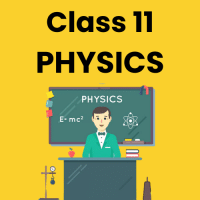Class 11 Exam > Class 11 Questions > In general, in the molecules containing multi...
Start Learning for Free
In general, in the molecules containing multiple bonds,_____ provide the most reactive centres. Choose the most appropriate one.
- a)σ bond
- b)p orbitals
- c)hyperconjugation
- d)π bonds
Correct answer is option 'D'. Can you explain this answer?
Verified Answer
In general, in the molecules containing multiple bonds,_____ provide t...
pie bonds are the most reactive centers.
Most Upvoted Answer
In general, in the molecules containing multiple bonds,_____ provide t...
Pi bonds are covalent chemical bonds where two lobes of an orbital on one atom overlap two lobes of an orbital on another atom and this overlap occurs laterally. Each of these atomic orbitals has zero electron density at a shared nodal plane, passing through the two bonded nuclei.
Free Test
FREE
| Start Free Test |
Community Answer
In general, in the molecules containing multiple bonds,_____ provide t...
Multiple Bonds and Reactive Centers
Multiple bonds in molecules contain reactive centers, which are sites where chemical reactions can occur. These reactive centers are crucial in determining the reactivity and behavior of the molecule.
Bonding and Reactivity
In molecules containing multiple bonds, the bonds themselves contribute to the reactivity of the molecule. The nature and characteristics of these bonds play a significant role in determining the reactivity of the molecule.
Hyperconjugation and Reactive Centers
Hyperconjugation refers to the interaction between the σ-bond and an adjacent π-bond or an empty p-orbital. This phenomenon can stabilize a molecule by delocalizing electron density and reducing the reactivity at a particular site. Therefore, hyperconjugation does not provide additional reactive centers in a molecule.
p Orbitals and Reactive Centers
p orbitals are involved in the formation of π-bonds, which are commonly found in molecules containing multiple bonds. These π-bonds contribute significantly to the reactivity of the molecule by participating in various chemical reactions. However, p orbitals alone do not provide additional reactive centers in a molecule.
Bonds and Reactive Centers
The correct answer is option 'D' - bonds. Bonds in molecules containing multiple bonds provide the most reactive centers. The presence of multiple bonds allows for the formation of additional reactive sites in the molecule. These additional sites can participate in chemical reactions, making the molecule more reactive overall. Therefore, bonds in molecules containing multiple bonds are the primary source of reactive centers.
Multiple bonds in molecules contain reactive centers, which are sites where chemical reactions can occur. These reactive centers are crucial in determining the reactivity and behavior of the molecule.
Bonding and Reactivity
In molecules containing multiple bonds, the bonds themselves contribute to the reactivity of the molecule. The nature and characteristics of these bonds play a significant role in determining the reactivity of the molecule.
Hyperconjugation and Reactive Centers
Hyperconjugation refers to the interaction between the σ-bond and an adjacent π-bond or an empty p-orbital. This phenomenon can stabilize a molecule by delocalizing electron density and reducing the reactivity at a particular site. Therefore, hyperconjugation does not provide additional reactive centers in a molecule.
p Orbitals and Reactive Centers
p orbitals are involved in the formation of π-bonds, which are commonly found in molecules containing multiple bonds. These π-bonds contribute significantly to the reactivity of the molecule by participating in various chemical reactions. However, p orbitals alone do not provide additional reactive centers in a molecule.
Bonds and Reactive Centers
The correct answer is option 'D' - bonds. Bonds in molecules containing multiple bonds provide the most reactive centers. The presence of multiple bonds allows for the formation of additional reactive sites in the molecule. These additional sites can participate in chemical reactions, making the molecule more reactive overall. Therefore, bonds in molecules containing multiple bonds are the primary source of reactive centers.

|
Explore Courses for Class 11 exam
|

|
Question Description
In general, in the molecules containing multiple bonds,_____ provide the most reactive centres. Choose the most appropriate one.a)σ bondb)p orbitalsc)hyperconjugationd)π bondsCorrect answer is option 'D'. Can you explain this answer? for Class 11 2025 is part of Class 11 preparation. The Question and answers have been prepared according to the Class 11 exam syllabus. Information about In general, in the molecules containing multiple bonds,_____ provide the most reactive centres. Choose the most appropriate one.a)σ bondb)p orbitalsc)hyperconjugationd)π bondsCorrect answer is option 'D'. Can you explain this answer? covers all topics & solutions for Class 11 2025 Exam. Find important definitions, questions, meanings, examples, exercises and tests below for In general, in the molecules containing multiple bonds,_____ provide the most reactive centres. Choose the most appropriate one.a)σ bondb)p orbitalsc)hyperconjugationd)π bondsCorrect answer is option 'D'. Can you explain this answer?.
In general, in the molecules containing multiple bonds,_____ provide the most reactive centres. Choose the most appropriate one.a)σ bondb)p orbitalsc)hyperconjugationd)π bondsCorrect answer is option 'D'. Can you explain this answer? for Class 11 2025 is part of Class 11 preparation. The Question and answers have been prepared according to the Class 11 exam syllabus. Information about In general, in the molecules containing multiple bonds,_____ provide the most reactive centres. Choose the most appropriate one.a)σ bondb)p orbitalsc)hyperconjugationd)π bondsCorrect answer is option 'D'. Can you explain this answer? covers all topics & solutions for Class 11 2025 Exam. Find important definitions, questions, meanings, examples, exercises and tests below for In general, in the molecules containing multiple bonds,_____ provide the most reactive centres. Choose the most appropriate one.a)σ bondb)p orbitalsc)hyperconjugationd)π bondsCorrect answer is option 'D'. Can you explain this answer?.
Solutions for In general, in the molecules containing multiple bonds,_____ provide the most reactive centres. Choose the most appropriate one.a)σ bondb)p orbitalsc)hyperconjugationd)π bondsCorrect answer is option 'D'. Can you explain this answer? in English & in Hindi are available as part of our courses for Class 11.
Download more important topics, notes, lectures and mock test series for Class 11 Exam by signing up for free.
Here you can find the meaning of In general, in the molecules containing multiple bonds,_____ provide the most reactive centres. Choose the most appropriate one.a)σ bondb)p orbitalsc)hyperconjugationd)π bondsCorrect answer is option 'D'. Can you explain this answer? defined & explained in the simplest way possible. Besides giving the explanation of
In general, in the molecules containing multiple bonds,_____ provide the most reactive centres. Choose the most appropriate one.a)σ bondb)p orbitalsc)hyperconjugationd)π bondsCorrect answer is option 'D'. Can you explain this answer?, a detailed solution for In general, in the molecules containing multiple bonds,_____ provide the most reactive centres. Choose the most appropriate one.a)σ bondb)p orbitalsc)hyperconjugationd)π bondsCorrect answer is option 'D'. Can you explain this answer? has been provided alongside types of In general, in the molecules containing multiple bonds,_____ provide the most reactive centres. Choose the most appropriate one.a)σ bondb)p orbitalsc)hyperconjugationd)π bondsCorrect answer is option 'D'. Can you explain this answer? theory, EduRev gives you an
ample number of questions to practice In general, in the molecules containing multiple bonds,_____ provide the most reactive centres. Choose the most appropriate one.a)σ bondb)p orbitalsc)hyperconjugationd)π bondsCorrect answer is option 'D'. Can you explain this answer? tests, examples and also practice Class 11 tests.

|
Explore Courses for Class 11 exam
|

|
Signup for Free!
Signup to see your scores go up within 7 days! Learn & Practice with 1000+ FREE Notes, Videos & Tests.


















